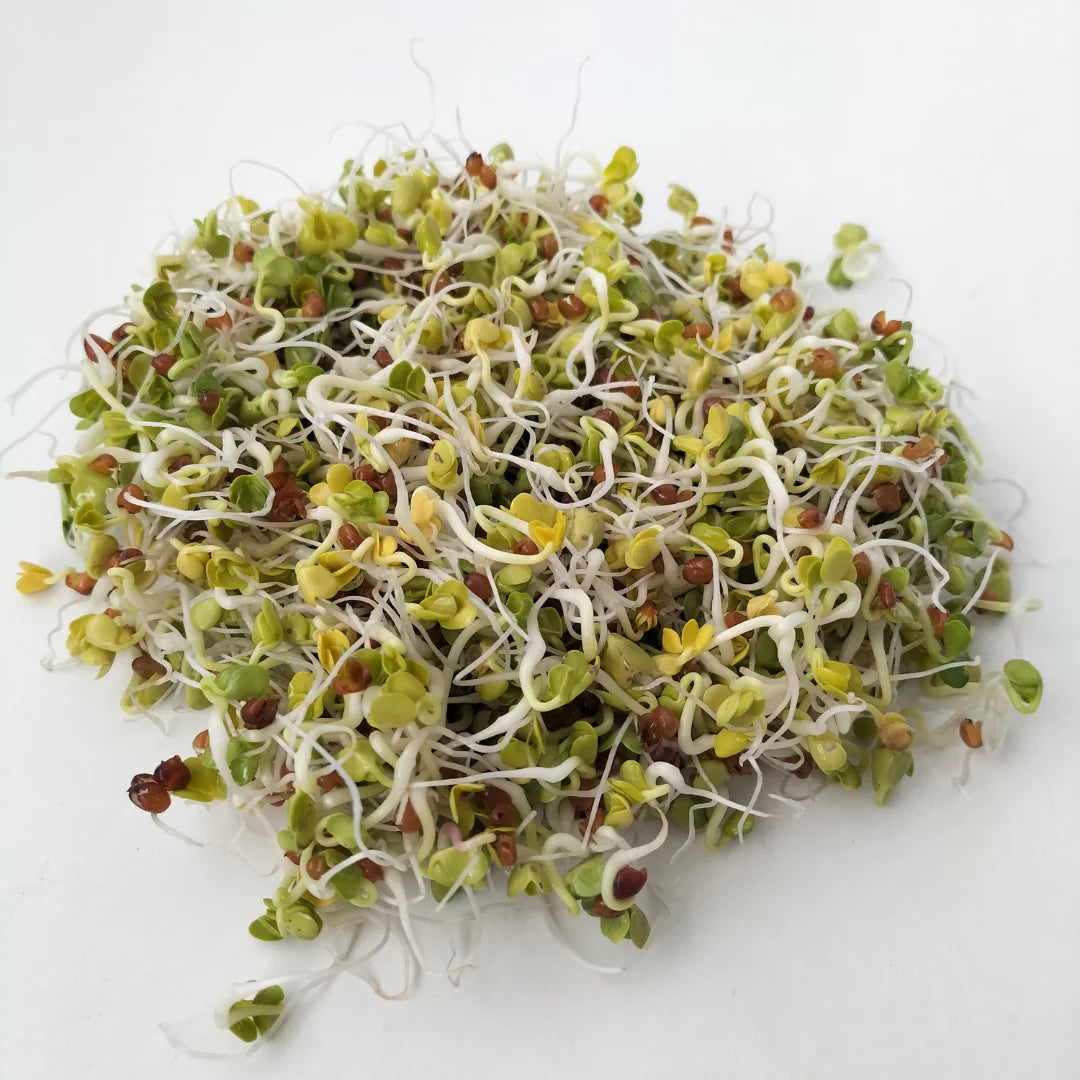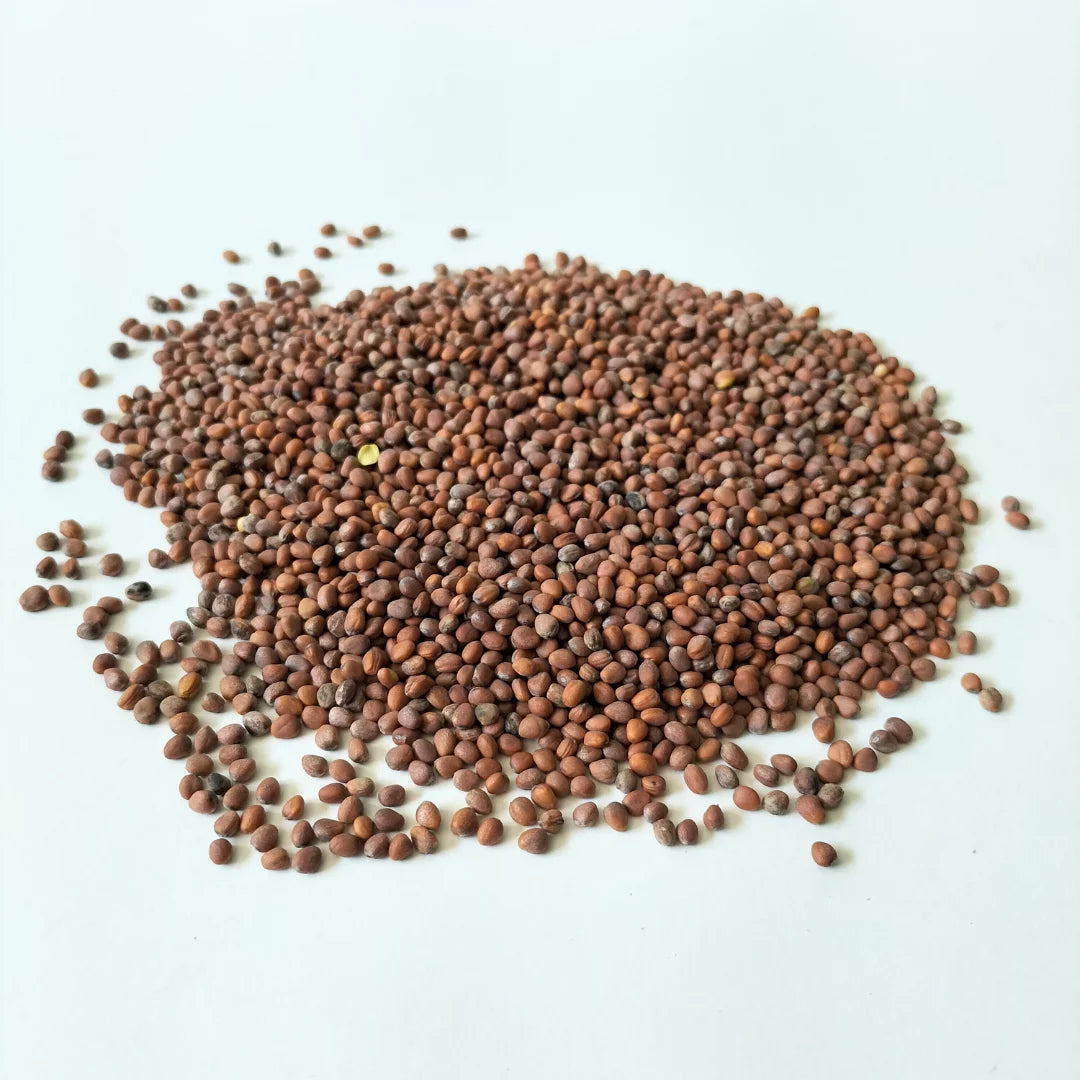Seeds Ireland
Organic Sprouting Seed: Daikon Radish
- Regular price
- €3.99 EUR
- Regular price
-
- Sale price
- €3.99 EUR
- Unit price
- per
Couldn't load pickup availability
Organic Daikon Radish Sprouting Seed
Name: Daikon Radish Sprouting Seed
Latin Name: Raphanus sativus
Description: Daiko Radish sprouts are a very quick and easy varitey of sprouting seed to grow. They have a spicy kick, and they taste very like you would expect a fully grown radish to taste. They are also very high yielding. Add them to any salad, soup, sandwich, or on top of any dish really to add a nice spicy crunch.
Seed Origin: Italy
Soak Time: 6 - 12 Hours
Ideal Growing Temperature: 15 °C to 20 °C
Seeding Rate: 2 - 4 Tablespoons, Depending On Jar Size
Expected Yield: 5 x The Weight of Seed Used
Estimated time to Harvest: 4 - 6 Days
How To Grow Daikon Radish Sprouts: Fill your sprouting jar up with 2 to 4 tablespoons of Daikon Radish seed, depending on jar size. Daikon Radish seed will yield you roughly 5 times the weight of the seeds you put in the jar in sprouts. This is dependant on how long you grow them for.
Fill the jar with water and let the seeds soak in it for 6 to 12 hours. Then drain the water and rinse the seeds. Leave the sprouting jar turned upside down to drain all excess water.
Daily Rinsing: Open your jar twice daily and rinse your seeds/sprouts thoroughly, filling the jar with water and draining it 2 to 3 times for each rinsing. Then leave the sprouting jar turned upside down to drain any excess water.
Placement: Place your sprouting jar in in-direct sunlight. This will allow the leaves to turn green, without the jar overheating in direct sunlight.
Harvesting: Daikon Sprouts can be ready to eat after as little as 4 days, but you can grow them longer. It is best to taste them after each day and see what your preference is, and take note for future growing. When you are happy with them, rinse them once more, remove from your jar, and store them in the refrigerator.
Share




